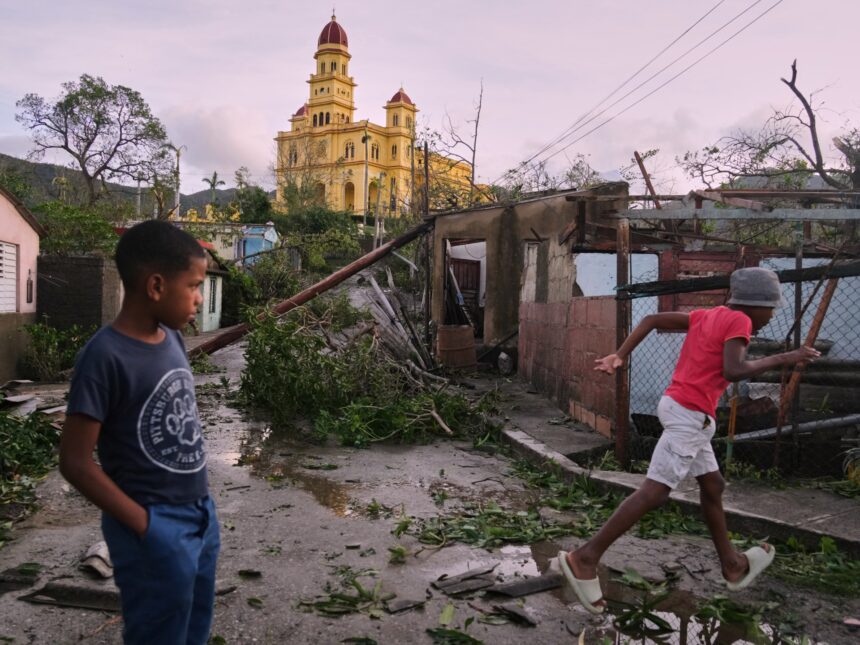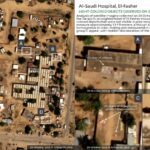The northern Caribbean has suffered widespread destruction in Hurricane Melissa’s aftermath, with casualties mounting across multiple islands.
Across Jamaica, the urgent sounds of heavy machinery, chainsaws and machetes dominate as workers and residents clear debris-choked roads to reach cut-off communities ravaged by one of the Atlantic’s most powerful recorded hurricanes.
Dazed survivors navigate through ruins, confronting homes without roofs and belongings scattered by fierce winds and floodwaters.
“I do not have a house now,” said Sylvester Guthrie, a sanitation worker from Lacovia in the southwestern Saint Elizabeth parish, holding his bicycle – the sole valuable that survived. “I have land in another location that I can build back, but I am going to need help,” he urged.
Relief efforts have commenced with emergency flights arriving at Jamaica’s main international airport, which resumed operations on Wednesday evening. Teams now distribute critical supplies, including water and food.
“The devastation is enormous,” said Jamaican transport minister Daryl Vaz.
Shelter remains a pressing issue for countless survivors. “I am now homeless, but I have to be hopeful because I have life,” said Sheryl Smith, whose home was partially destroyed.
Authorities have recovered at least four bodies in southwest Jamaica. Prime Minister Andrew Holness noted that up to 90 percent of roofs in the coastal town of Black River were destroyed. “Black River is what you would describe as ground zero,” he said. “The people are still coming to grips with the destruction.”
More than 25,000 people remain in shelters across western Jamaica, with 77 percent of the island experiencing power outages.
Melissa struck Jamaica on Tuesday as a Category 5 hurricane with winds reaching 295 kilometres per hour (185 miles per hour), matching Atlantic hurricane landfall records for both wind speed and barometric pressure. By early Wednesday, it had weakened to Category 3 when it hit eastern Cuba.
The hurricane also triggered catastrophic flooding in Haiti, killing at least 25 people with 18 others missing, primarily in the country’s southern region.
In Cuba, residents began clearing blocked thoroughfares using heavy equipment and military assistance, which also rescued people trapped in remote areas vulnerable to landslides.
No deaths were reported after the civil defence evacuated more than 735,000 people across eastern Cuba, who are gradually returning home.
Hurricane warnings remained active late on Wednesday for the southeastern and central Bahamas and Bermuda, with hurricane conditions expected to continue overnight in the southeastern Bahamas, where dozens have evacuated.
Forecasters predict Melissa will pass near or west of Bermuda late on Thursday, potentially strengthening before eventually weakening.










